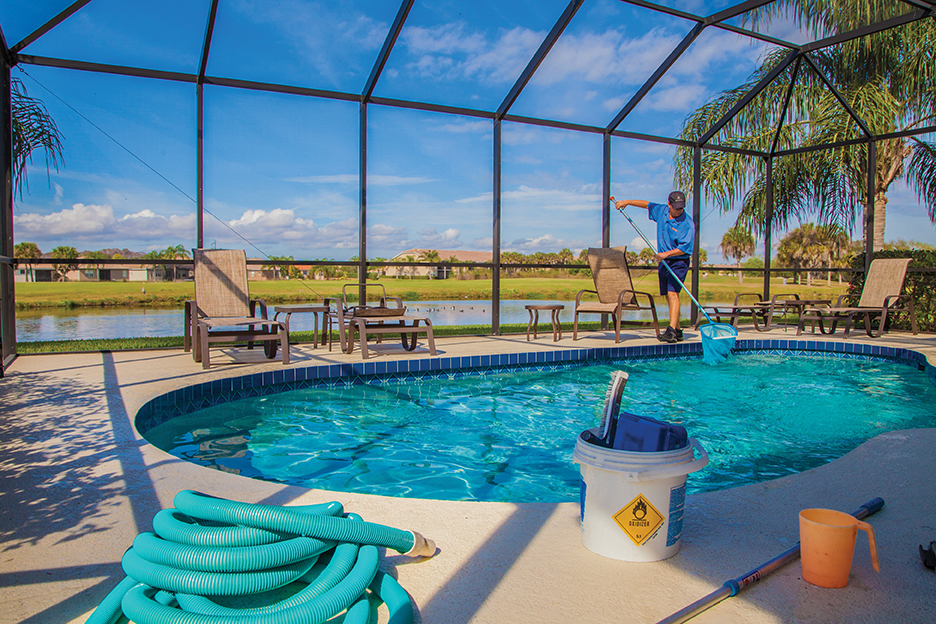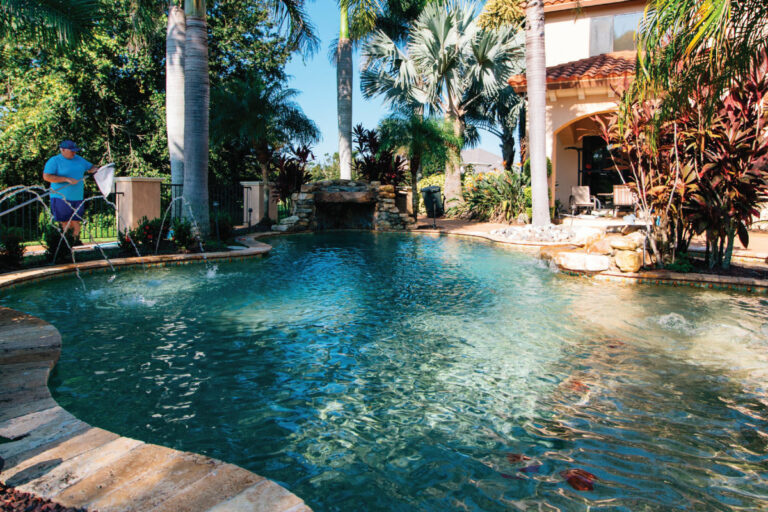The Chemical Conundrum

It creates massive frustration for you and your customers: A customer pays for the technician to come out, check the water chemistry and clean the pool; any chemicals added are noted as an additional expense. Unless the customer knows about these charges in advance, the bill can lead to heated debate when it arrives in the customer’s mailbox.
Are there best practices on this topic, or is this a pool pro’s version of the Wild West?
“Our customers want to know the bottom-line price (materials, labor and tax) in order to budget for seasonal costs,” says Jamie O’Brien, president of O’Brien Pool Service, which has served the St. Louis area for 31 years. “Since a pool is very expensive to own and maintain for only about half a year of use, we offer different packages to suit customer needs. We have a minimum service package that takes care of pool openings, water balancing and closing the pool at season’s end; an intermediate plan for customers who’d rather split the maintenance chores with us. Most of our customers are hands off; they want us to handle everything on a weekly basis.”
O’Brien says the basic chemicals are included in its contracted price. “In our contract, we include all chemicals [except for] phosphate or algaecide,” O’Brien says. “Everything is spelled out in print, so there are no nasty surprises when the customer receives our monthly service invoice.”
For 16 years, Phil Stengel has owned Doug’s Pools in Springfield, Missouri. Stengel also includes chemical charges in his weekly residential pool service. “The only thing that could change that chemical fee, in my experience, is if a powerful storm rolls into the area, maybe creating extended power outage or blowing debris into the pool, which drastically alters the water chemistry and would require additional chemicals to eliminate health risks and make the water safe again,” Stengel says.
There are pool companies who find it bad business to include all chemical fees in its service package. Stengel says it’s more of a geography issue. “If you go to places like California, Arizona or Florida — places where a pool is used year-round — fluctuating charges for chemicals tend to mostly happen because of weather extremes you don’t find in other parts of the country, the amount of pool use and whether that year-round pool is covered or uncovered when not in use.”
Still, how to handle a chemical upcharge with customers can be thorny. “We’ve started leaving door hangers on our customers’ front doors,” O’Brien says. “It’s still a standard place to direct people to look, just in case they weren’t home when O’Brien Pool Service stopped by. For cleaning techs, they have a door hanger that lists all chemicals they could have used, and they check the appropriate boxes on what was used and note any chemicals the customer will be charged for. The customer is free to call the office with any questions. But we’ve found that most customers notice if there’s a difference in the clarity of their water, a chemical upcharge isn’t a shock. With the door hanger, at least they have the ability to question the charges that week, as opposed to three weeks later when the bill arrives.”
Stengell says pool size matters on weekly service charges. “You’ve got to see a pool before you price a job,” he says. “As long as I’ve seen the pool, have the measurements, know the mechanics of the pool are operating correctly, how much chemicals we’ll use and labor costs, I can give the customer an accurate quote.”
Use common sense to protect your company, and put all cards on the table with your customer. The murky waters of how to handle chemical pricing will clear in no time.





